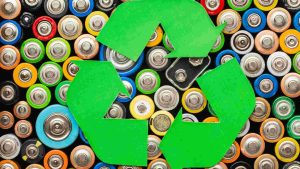![]()
The current trends in the plastic scrap import industry in India: This blog presents some insights into India’s plastic scrap import industry. However, it must be noted that the industry is dynamic, and trends keep on evolving. So, one must never forget to keep a check on the same. Although this blog covers vital aspects and trends, you should check official websites for the most up-to-date information.
Introduction
India’s plastic scrap import industry has been a significant player in the global recycling market. India’s growing economy and the increasing use of plastic products have led to a rising demand for recycled plastic materials. This demand has made India one of the world’s largest plastic scrap importers. Let’s explore some of the key trends and factors shaping this industry.
1. Regulatory Changes
One of the most significant trends affecting the plastic scrap import industry in India is regulatory changes. The Indian government has implemented various policies and regulations to address environmental concerns and promote sustainable practices. As of 2021, the following regulations were noteworthy:
Plastic Waste Management Rules, 2016
These rules laid down guidelines for plastic waste management, including the collection, segregation, and disposal of plastic waste. They also emphasised the responsibility of producers, importers, and brand owners (PIBO) in managing the life cycle of plastic products.
Plastic Waste Management Rules, 2022
The recently introduced Plastic Waste Management Rules, 2022 and the second amendment made to these regulations elaborate the instructions for EPR for plastic packaging.
Extended Producer Responsibility (EPR)
EPR(Extended Producer Responsibility) was a key concept in the Plastic Waste Management Rules, shifting the responsibility for managing plastic waste to the producers. This had an impact on the import of plastic scrap as producers became more cautious about the quality of the material they were importing.
Plastic Waste Import Ban
In 2019, India imposed a ban on the import of plastic waste classified under the Basel Convention. This ban aimed to reduce the environmental impact of low-quality plastic scrap imports.
2. Quality Standards
Quality has become a paramount concern in the plastic scrap import industry. With regulations in place and a growing emphasis on sustainability, Indian importers have been seeking higher-quality plastic scrap. This shift has resulted in increased scrutiny of imported materials and more significant investments in sorting and processing facilities to meet quality standards.
3. Demand from Various Industries
The demand for plastic scrap in India comes from various industries, including packaging, automotive, construction, and textiles. As these sectors grow, the demand for recycled plastic materials has also increased. This trend is expected to continue as more industries recognise the environmental and economic benefits of using recycled plastics.
4. Investment in Recycling Infrastructure
In recent years, there has been an increase in investments in recycling infrastructure in India. Various stakeholders, including government bodies, private companies, and non-governmental organisations, have been working to establish and expand recycling facilities. This investment aims to reduce the country’s dependence on plastic scrap imports by increasing domestic recycling capacity.
5. Shifting Import Sources
The sources of plastic scrap imports have been shifting. While countries like the United States, the United Kingdom, and the European Union were significant suppliers of plastic scrap to India, changes in regulations and global trade dynamics have led to diversification in import sources. Indian importers have been exploring new markets, such as Southeast Asian countries, for their plastic scrap requirements.
6. Circular Economy Initiatives
The concept of a circular economy, which emphasises reducing waste and promoting recycling and reuse, has gained traction in India. Various organisations and government bodies have launched initiatives to promote the circular economy, which includes recycling plastic waste. These initiatives can potentially reshape the plastic scrap import industry by reducing the demand for virgin plastics and increasing the need for recycled materials. The demand for compostable and biodegradable plastic is also increasing.
7. Technological Advancements
Advancements in technology have served a crucial role in the plastic scrap import industry. New technologies in sorting, cleaning, and processing plastic scrap have improved the quality and efficiency of recycling operations. These technologies have the potential to make the industry more sustainable and reduce environmental impacts.
8. Export Challenges
While India imports a substantial amount of plastic scrap, it also faces challenges in exporting plastic scrap materials to other countries. Stringent regulations in importing countries, particularly those in the European Union, have made it challenging for Indian exporters to access international markets. This challenge highlights the need for India to focus on improving the quality and compliance of its recycled materials.
9. Public Awareness and Education
The public’s awareness of the environmental consequences of plastic waste has been growing in India. This increased awareness has led to demands for sustainable practices, including better waste management and recycling. Education and awareness programs have become vital in promoting responsible plastic consumption and recycling.
10. Sustainable Packaging Initiatives
With the growing attention on environmental sustainability, many Indian companies have been adopting sustainable packaging solutions. This includes using recycled plastics in packaging materials and reducing single-use plastics. These initiatives are expected to drive the demand for high-quality recycled plastic materials.
Conclusion
India’s plastic scrap import industry is undergoing significant changes and challenges, driven by evolving regulations, quality standards, demand from various industries, and the broader shift towards sustainability. While the industry has faced setbacks such as import bans and export challenges, it has also witnessed investments in recycling infrastructure, technological advancements, and a growing awareness of the importance of recycling and sustainable practices.
To stay competitive and environmentally responsible, businesses involved in the plastic scrap import industry must adapt to these trends, invest in quality control and recycling technologies, and actively participate in the development of a circular economy. As India continues to grow and modernise, the plastic scrap import industry will likely play a crucial role in shaping the country’s approach to plastic waste management and recycling.





